On October 29, the National Assembly discussed in the hall a number of controversial contents of the draft revised Law on Value Added Tax (VAT). Taxes on fertilizers, machinery, specialized equipment for agricultural production, and fishing vessels are receiving many conflicting opinions.
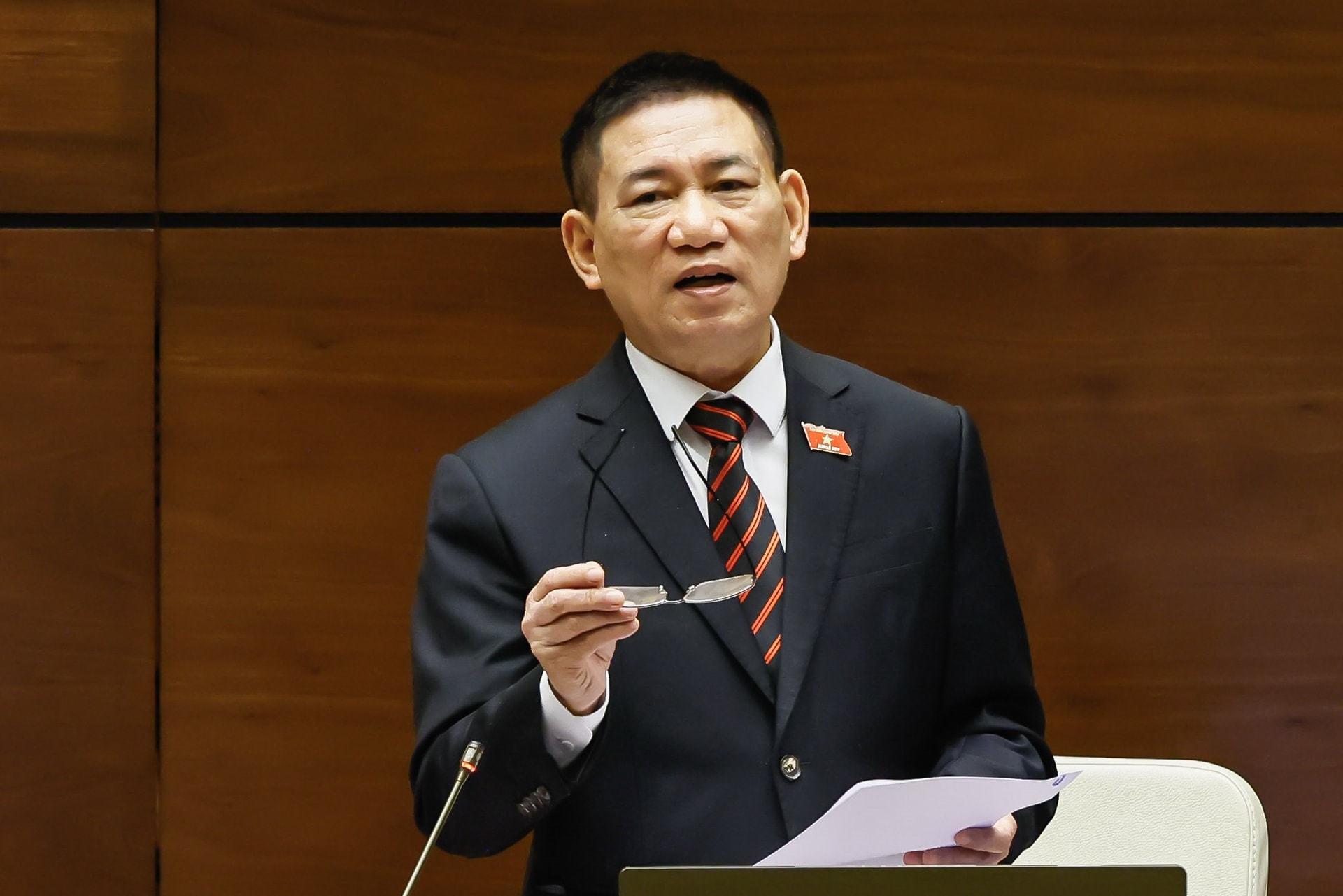
Tax increase for the benefit of "three houses"
At the meeting, reporting on the explanation, acceptance and revision of the draft amended Law on Value Added Tax, Mr. Le Quang Manh - Chairman of the National Assembly's Finance and Budget Committee said that regarding the 5% tax rate, there were opinions agreeing with the Government's draft Law, changing fertilizers from non-taxable to subject to a 5% tax rate. There were other opinions suggesting keeping the current regulations, because of concerns that imposing a 5% tax would increase the price level of fertilizers on the market and farmers would be directly affected, affecting the cost of agricultural products.
"To address the shortcomings in policies for the fertilizer production industry in recent times, the National Assembly Standing Committee would like to keep the draft Law as it was submitted by the Government to the National Assembly at the 7th Session," Mr. Manh stated his opinion.
Citing evidence that countries around the world apply value added tax to the fertilizer industry (for example, China is the world's largest fertilizer producer and consumer and is currently applying a value added tax of 11% to fertilizers; Russia is the world's largest fertilizer exporter and is also applying value added tax to the fertilizer industry to improve productivity and quality of crops, contributing to ensuring food security and sustainable agricultural development), National Assembly Deputy Dang Thi Bich Ngoc (Hoa Binh Delegation) suggested that there should be tax policies to support the development of the fertilizer industry towards sustainable development, harmoniously combining direct and indirect taxes in the tax system such as: VAT, environmental protection tax, import-export tax, corporate income tax.
National Assembly Deputy Trinh Xuan An (Dong Nai Delegation) also said that applying a 5% tax rate on fertilizers is beneficial to "three houses", which are farmers, the state and enterprises. According to Mr. An, with VAT, input and output must go together. Output is not subject to tax, input is not deductible. For example, if a business buys an input product for 80 VND, they will have to pay an input VAT of 8 VND; the selling price of fertilizer is 100 VND. If not deductible, in principle they will have to include it in the cost, calculate it into the price, that price will be 108 VND. If taxed at 5%, that business will be deducted 8 VND, the selling price will only be 105 VND.
“The 5% tax only affects import enterprises, domestic enterprises are also protected, and people will have the opportunity to reduce prices. The principle of price fixing does not mean that if the tax is increased by 5%, prices will automatically increase by 5% and people will be affected,” said Mr. An.
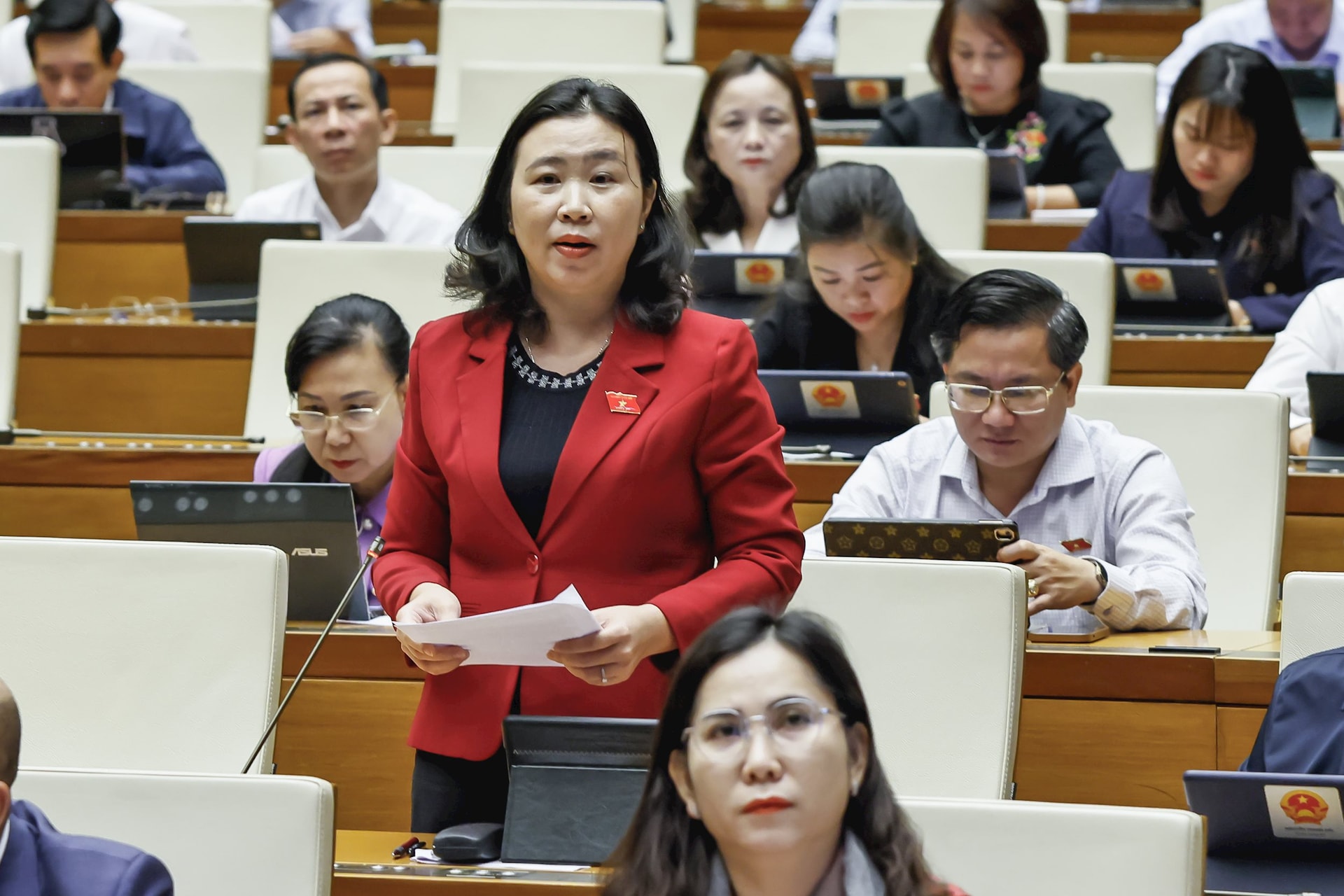
Taxes, but how much?
National Assembly Delegate Le Thi Song An (Long An Delegation) suggested that the Drafting Committee should consider and change fertilizers to non-VAT taxable items. Because VAT is an indirect tax and ultimately the person who has to bear the tax is the consumer, in this case the farmer.
Applying a 5% tax rate on fertilizers will certainly lead to an increase in fertilizer prices on the market and this will create significant impacts on the agricultural sector and farmers. Meanwhile, our country's agricultural sector is still unstable and unsustainable, and agricultural product output still has difficulty competing with foreign products. "Standing on the people's side, we will see that people will have to bear the high price of fertilizers and when fertilizer prices increase, agricultural production costs will increase, increasing the cost of agricultural products. Thus, if a 5% tax rate is applied to fertilizers, the State and enterprises may benefit, but farmers, the most important part of the agricultural sector, will be the ones who suffer the most," said Ms. An.
Sharing the same view, National Assembly member Ta Van Ha (Quang Nam delegation) analyzed that VAT is levied on consumers, first of all on fertilizers and agricultural products. Therefore, it needs to be carefully studied, because when farmers buy fertilizers, there is no invoice, so how can they deduct depreciation or input deductions? So if the tax rate is 5%, farmers will have to bear it.
Mr. Ha proposed that fertilizers should be subject to VAT but at a 0% tax rate so that fertilizer manufacturing enterprises can deduct input costs, which is beneficial for enterprises, while farmers do not have to pay a 5% increase.
Proposed tax rate of 5%
Explaining, Deputy Prime Minister and Minister of Finance Ho Duc Phoc said that fertilizer prices do not only depend on tax increases or decreases, but also on production costs, the market, and supply and demand. In fact, production costs depend on science and technology, labor productivity, individual workers, other factors, modernization, and especially supply and demand.
While we are implementing the tax exemption for this item in the 2018-2022 period, the price of urea fertilizer still increased by 19.71% to 43.6%. VAT is still not collected, which means it depends basically on the market, that is, on supply and demand. But in 2023, the price of urea increased by 6.29 to 6.4% because of the war between Russia and Ukraine. Because demand is high but supply is low, it depends mainly on supply and demand.
According to Mr. Phuc, when we introduce taxes, it is true that prices will increase. The increase in prices is mainly import prices. Import prices mean that our domestic enterprises will benefit. Because when prices increase, taxes will be applied to both imports and domestic ones. Therefore, when import prices increase, domestic enterprises will have conditions to compete. Thus, foreign enterprises have to pay 1,500 billion because of the large number of imported goods, while domestic enterprises only have to pay an additional 200 billion.
“The benefits to ensure domestic enterprises are very good and create conditions for domestic enterprises to improve techniques and apply modern technology, reducing product component prices. Thus, the selling price for farmers will be reduced and we will be in control of the fertilizer issue. We also earnestly request delegates to support the proposed plan, that is, the 5% tax rate will not greatly affect the price issue,” said Mr. Phoc.
8th working day of the 8th session of the 15th National Assembly
On October 29, the National Assembly continued its 8th working day (8th Session, 15th National Assembly) at the National Assembly House under the chairmanship of National Assembly Chairman Tran Thanh Man.
Morning: Under the direction of Vice Chairman of the National Assembly Nguyen Duc Hai, the National Assembly convened a plenary session in the hall to listen to the following contents: Minister of Planning and Investment Nguyen Chi Dung, authorized by the Prime Minister, presented the Report on the draft Law on Public Investment (amended); Chairman of the National Assembly's Finance and Budget Committee Le Quang Manh presented the Report on the review of the draft Law on Public Investment (amended); Deputy Prime Minister, Minister of Finance Ho Duc Phoc, authorized by the Prime Minister, presented the Report on the draft Law amending and supplementing a number of articles of the Securities Law, the Accounting Law, the Independent Audit Law, the State Budget Law, etc.; Member of the National Assembly Standing Committee, Chairman of the National Assembly's Finance and Budget Committee Le Quang Manh presented the Report on explaining, accepting and revising the draft Law on Value Added Tax (amended).
After that, the National Assembly discussed a number of contents with different opinions of the draft Law on Value Added Tax (amended). At the discussion session, the opinions of the delegates basically appreciated the preparation of the Report on reception, explanation and adjustment of the National Assembly Standing Committee and agreed with many contents of the draft Law. To continue perfecting the draft Law, the National Assembly delegates focused on discussing the following contents: meeting the goals of tax system reform; the regulation of the tax rate of 5% (for fertilizers; clean water for production and daily life...); non-taxable subjects; taxpayers; time to determine value added tax... At the end of the discussion, Deputy Prime Minister, Minister of Finance Ho Duc Phoc and Chairman of the National Assembly's Finance and Budget Committee Le Quang Manh spoke to explain and clarify a number of issues raised by the National Assembly delegates.
Afternoon: The National Assembly discussed in groups two draft laws: Draft Law on Public Investment (amended); Draft Law on amending and supplementing a number of articles of the Law on Securities, Law on Accounting, Law on Independent Auditing, Law on State Budget, Law on Management and Use of Public Assets, Law on Tax Administration and Law on National Reserves.
Source: https://daidoanket.vn/ban-khoan-khi-ap-thue-voi-phan-bon-10293379.html



![[UPDATE] April 30th parade rehearsal on Le Duan street in front of Independence Palace](https://vstatic.vietnam.vn/vietnam/resource/IMAGE/2025/4/18/8f2604c6bc5648d4b918bd6867d08396)

![[Photo] Prime Minister Pham Minh Chinh receives Mr. Jefferey Perlman, CEO of Warburg Pincus Group (USA)](https://vstatic.vietnam.vn/vietnam/resource/IMAGE/2025/4/18/c37781eeb50342f09d8fe6841db2426c)


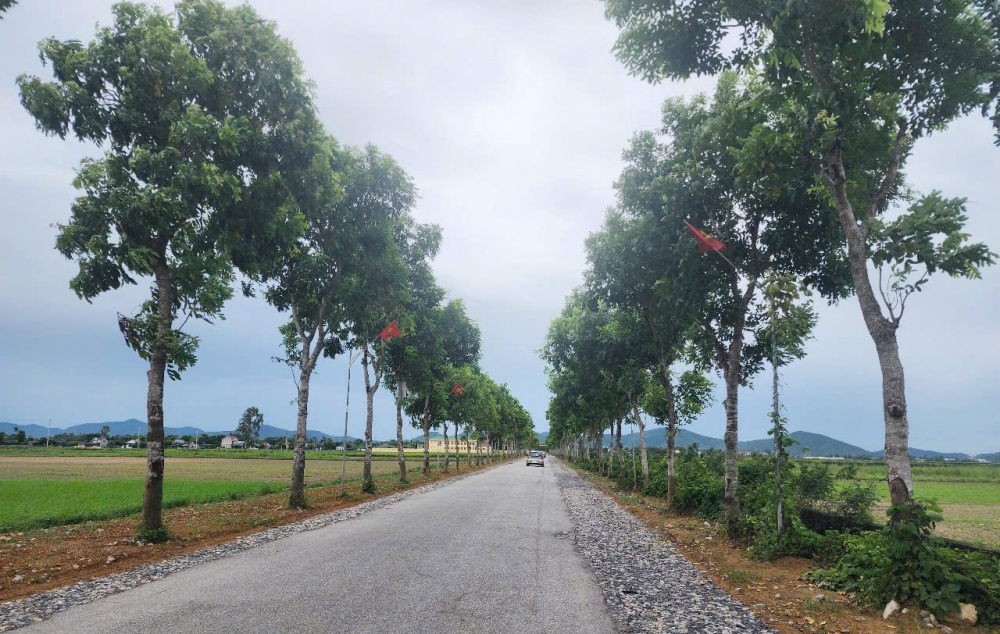



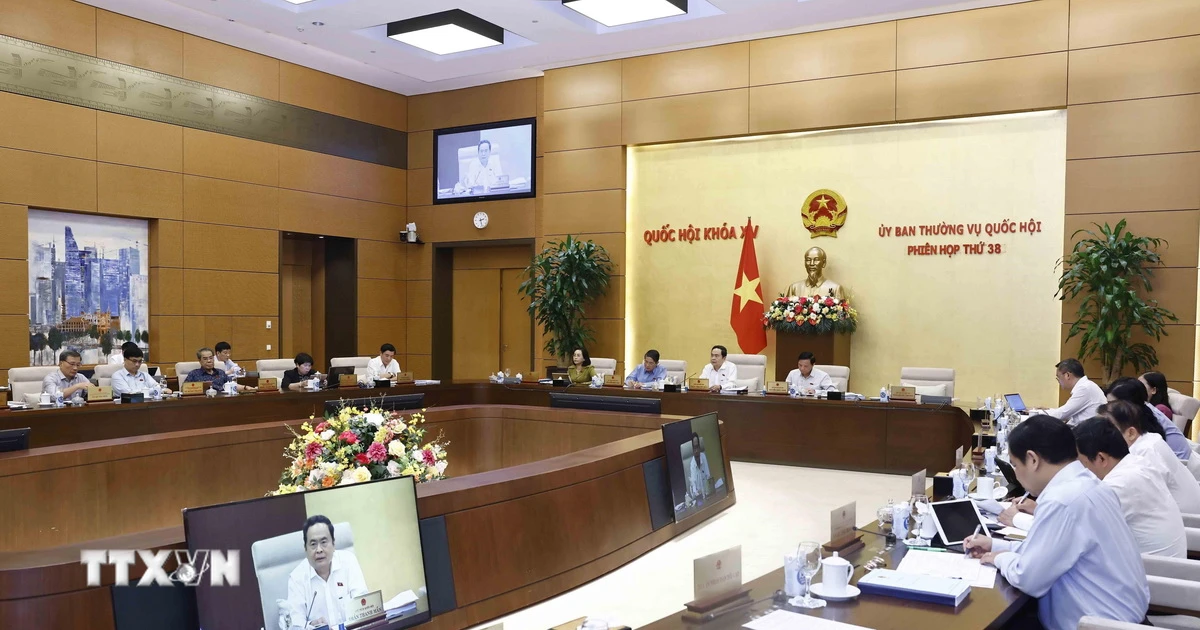
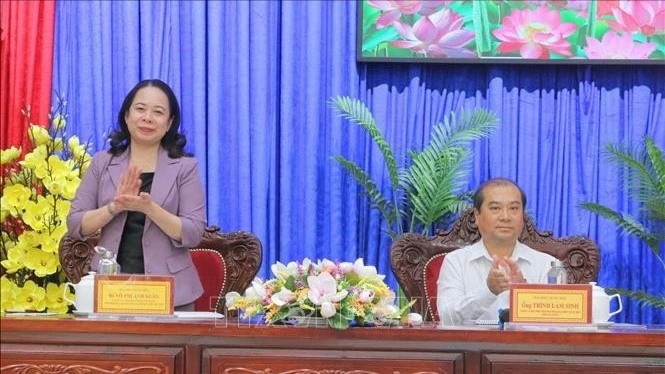
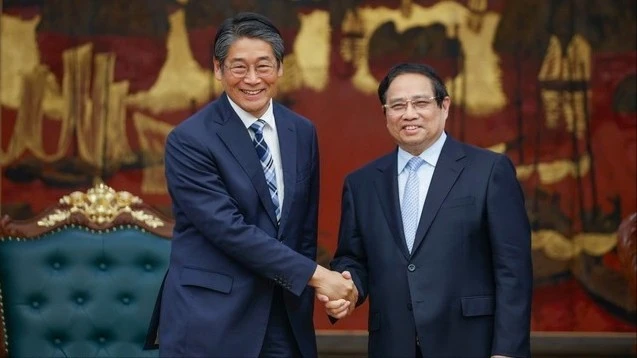

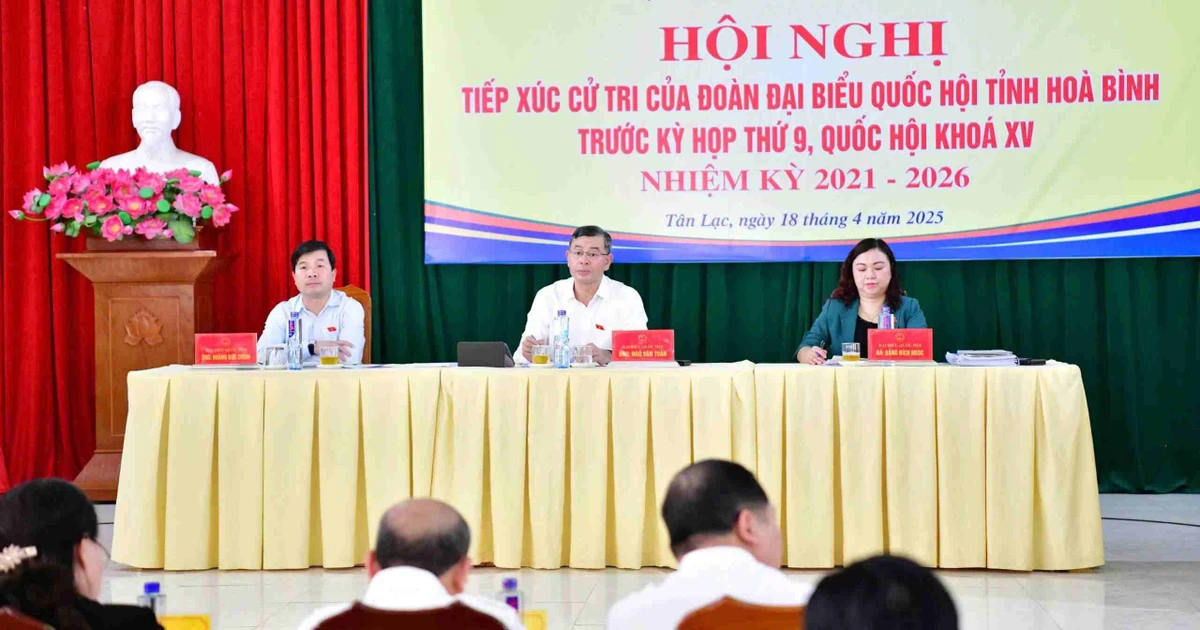
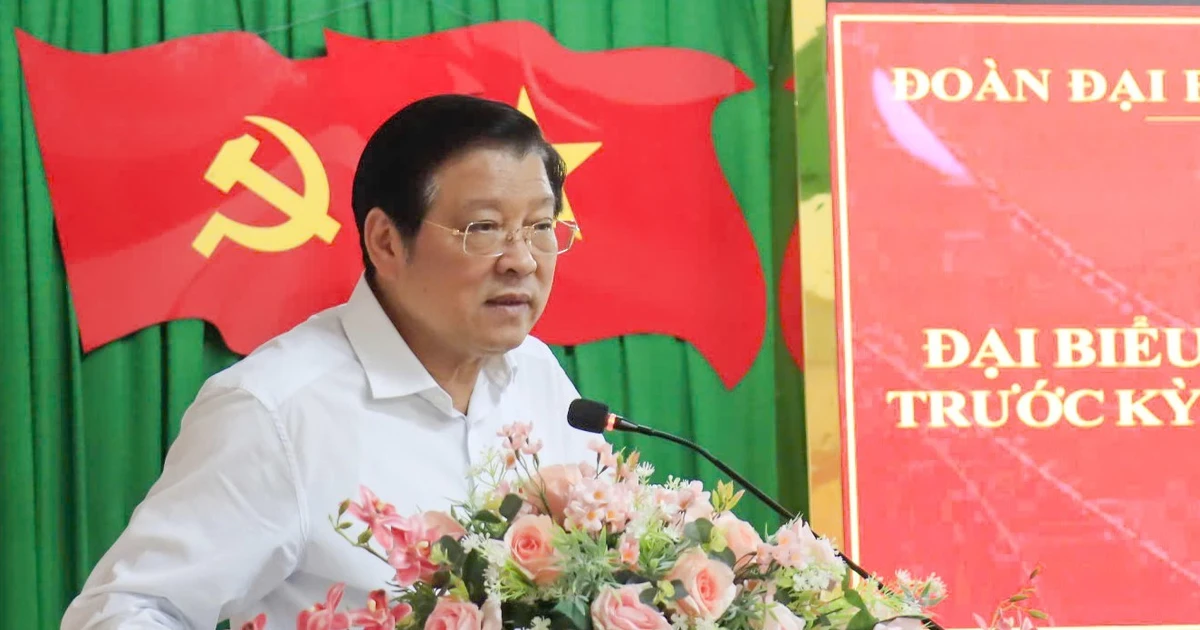
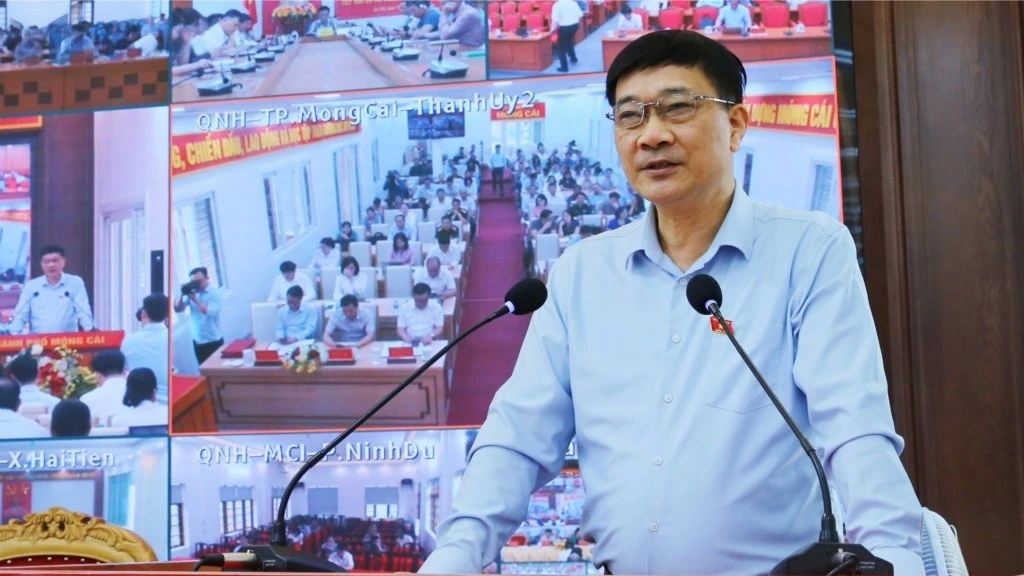






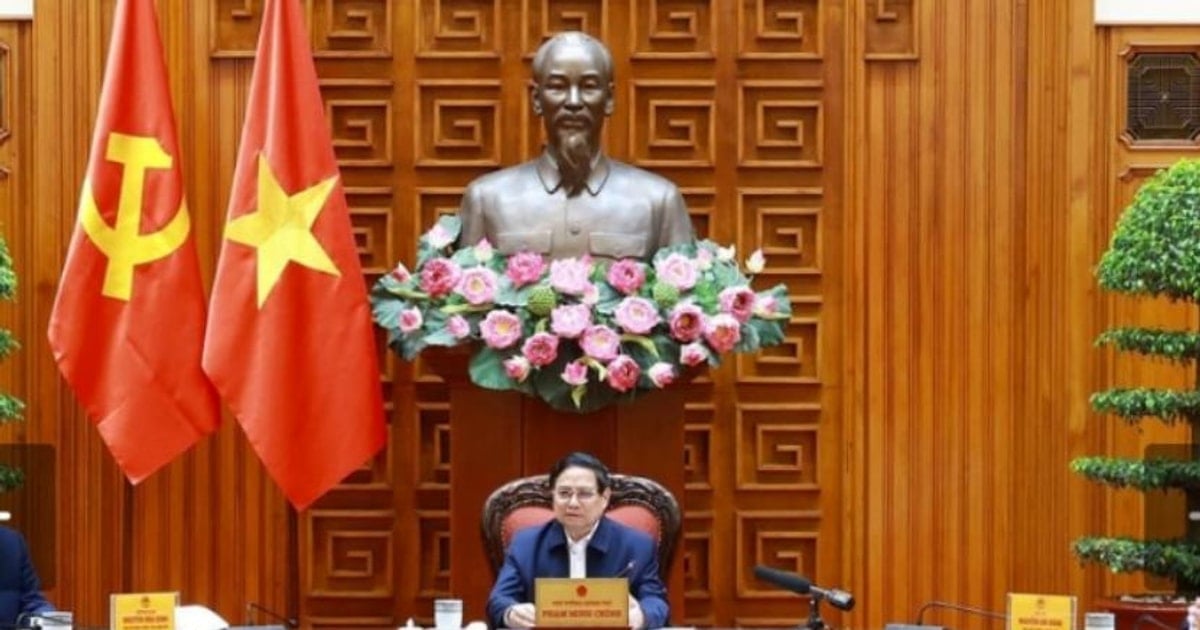
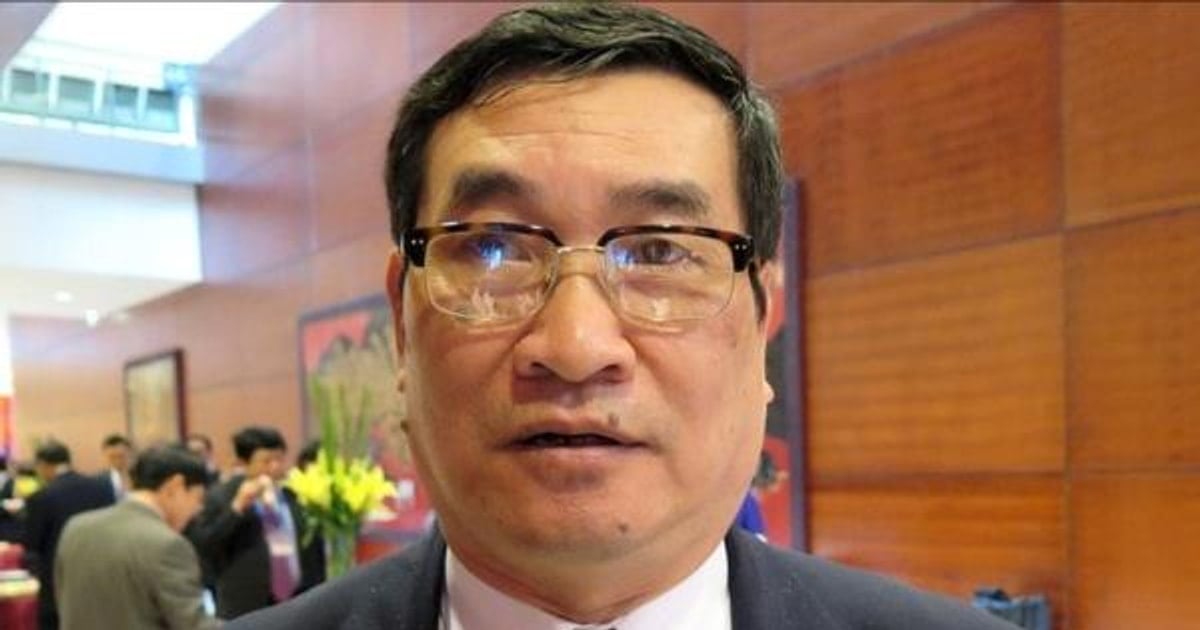
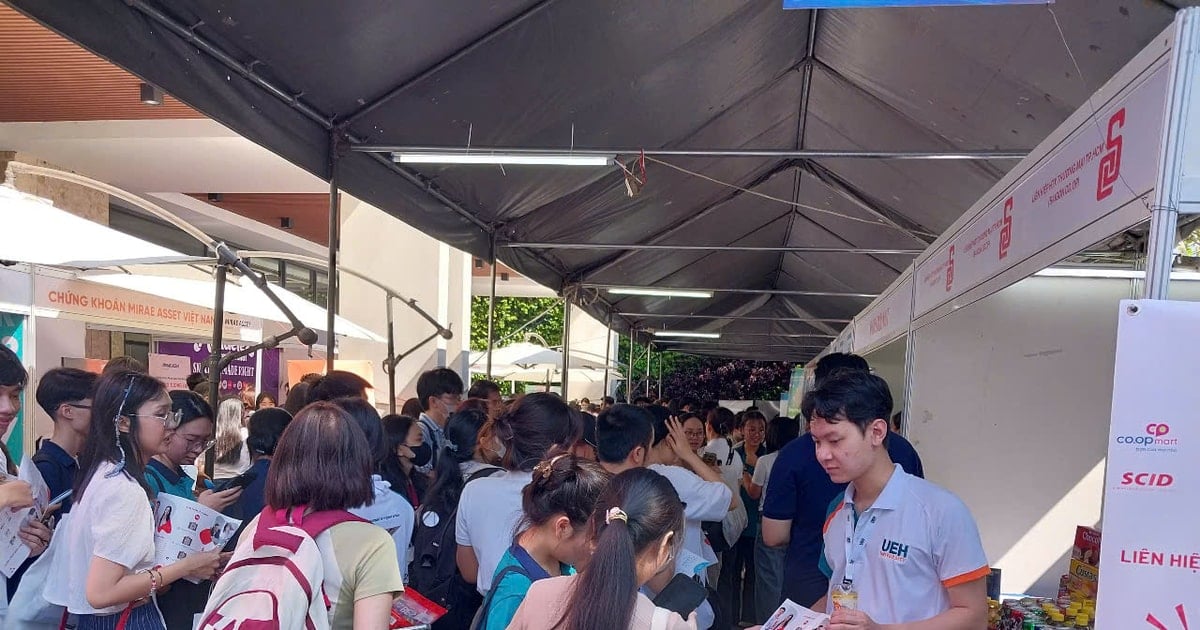



































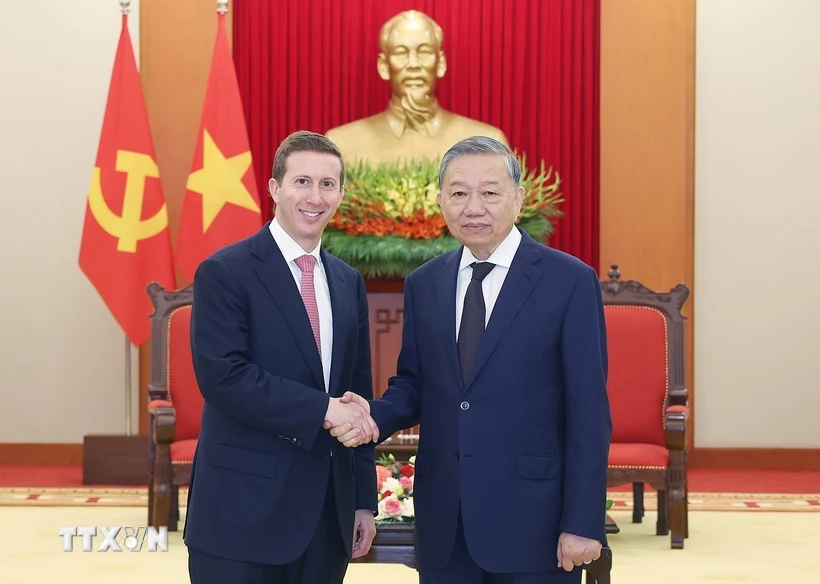









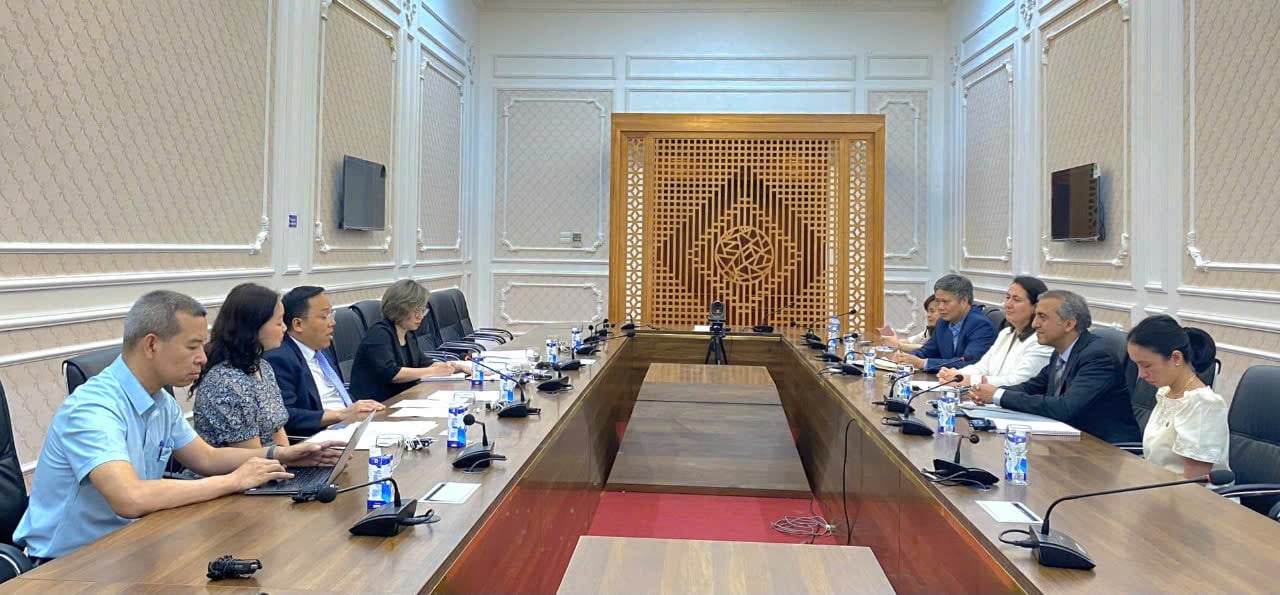


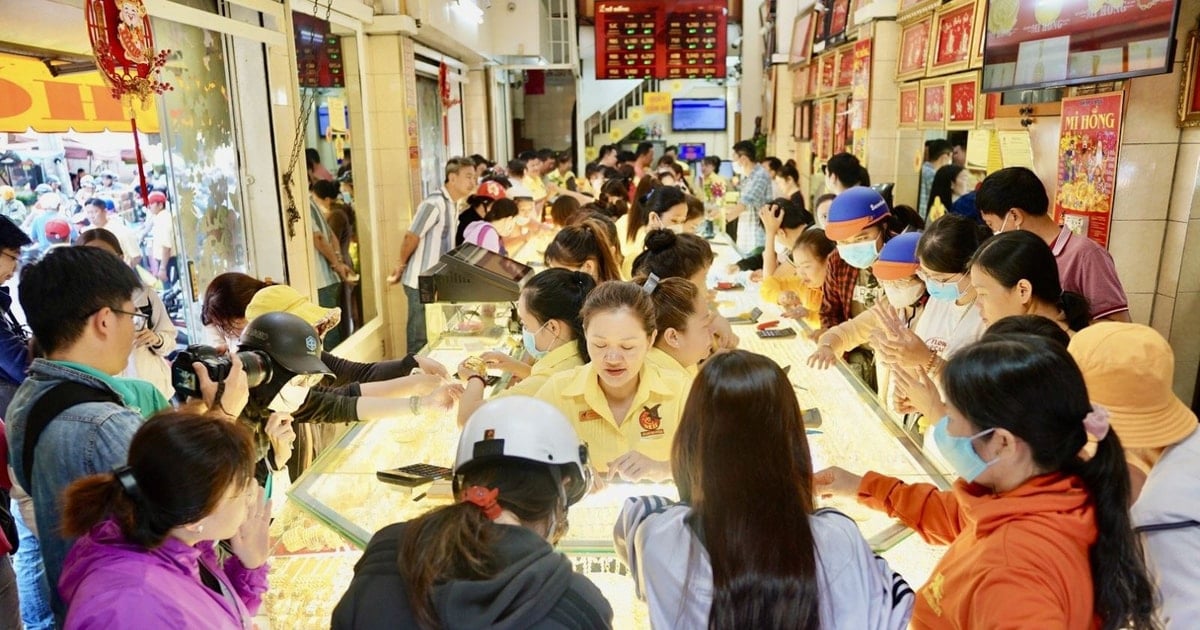


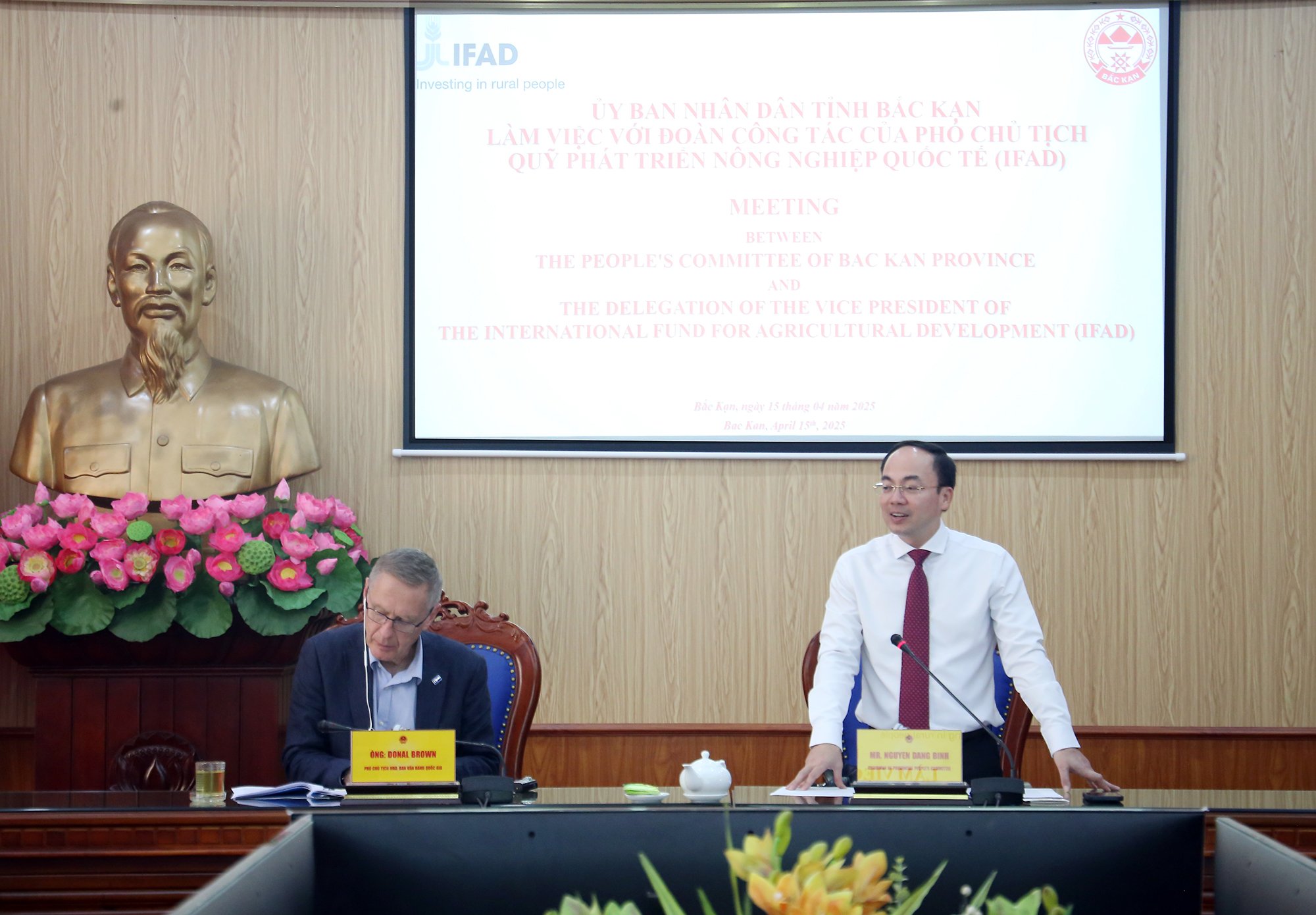
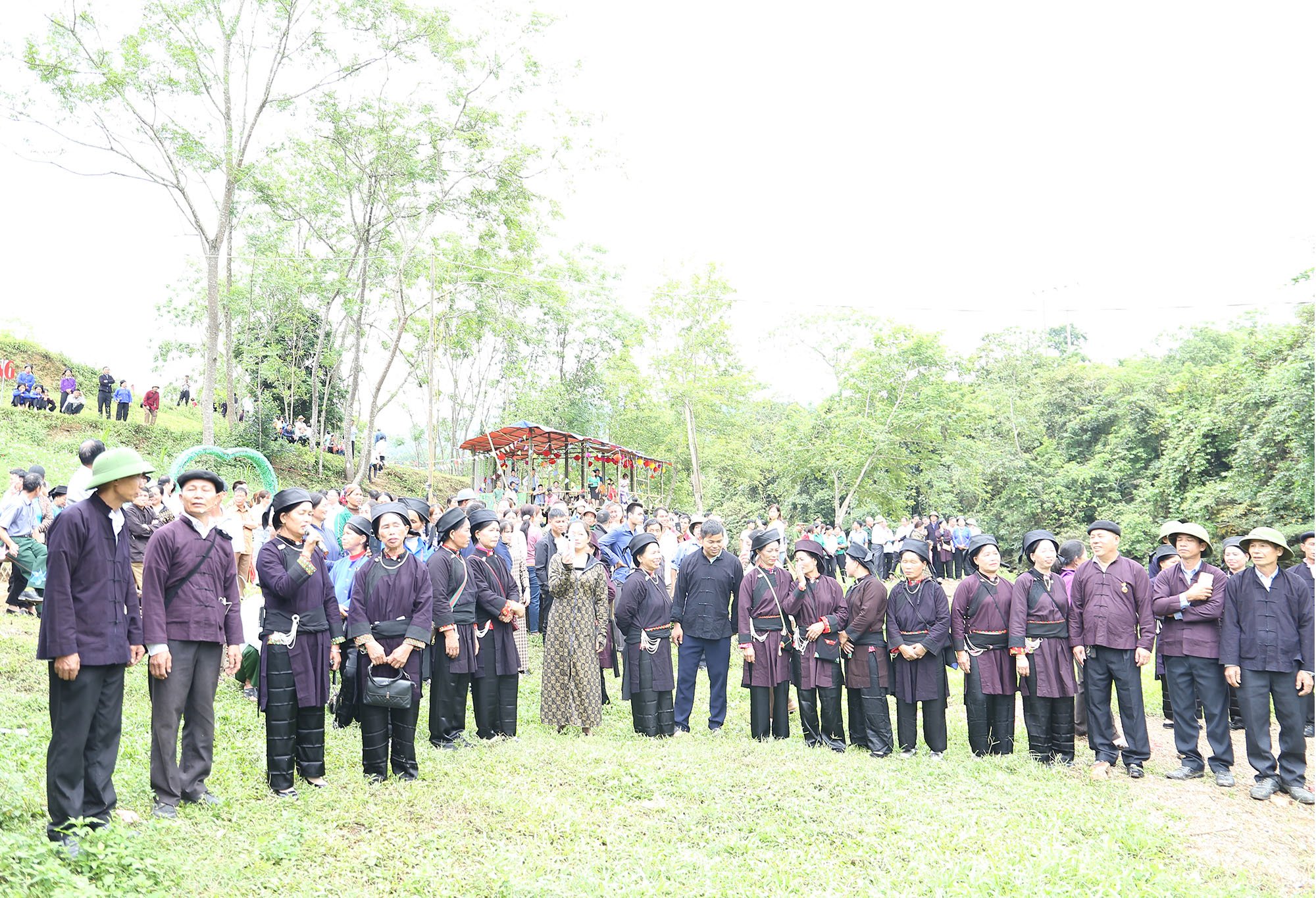
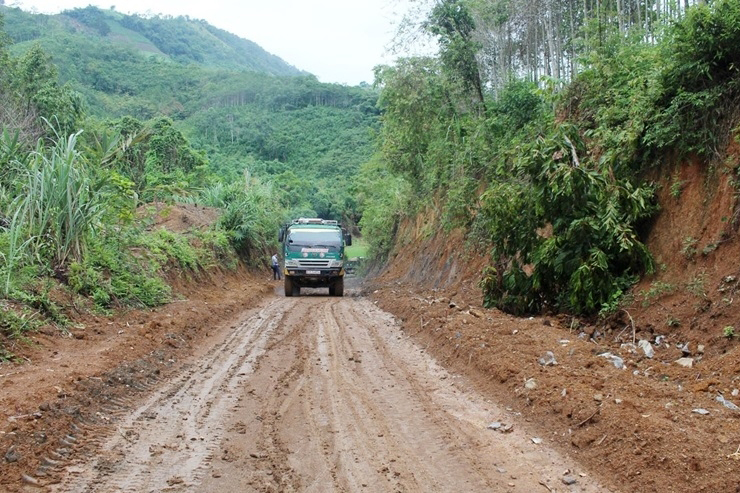











Comment (0)